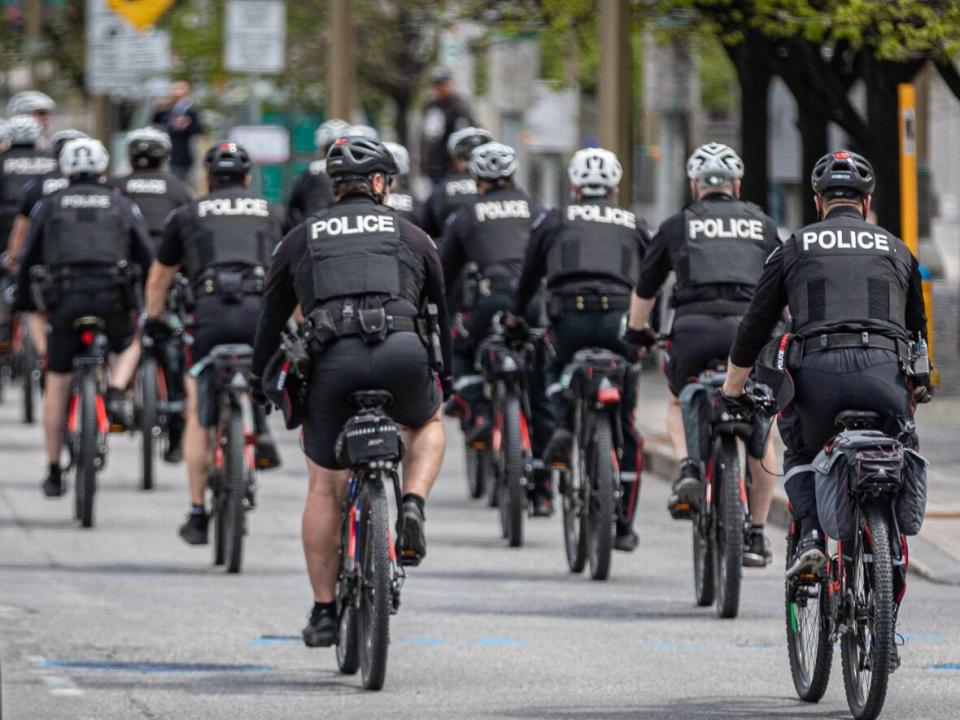Internal survey reveals decline in officer job satisfaction within Ottawa police

An internal survey of Ottawa police officers shows limited satisfaction in their police service, a lack of accountability for poor performance and poor conduct, and a continued culture of fear of reporting the behaviour of their own colleagues.
Results of the "member survey," which was funded by the Ottawa Police Service (OPS), were made public this week as part of a series of budget-related consultations. Few questions in the member survey had to do with resources as it focused on gauging demographics in the service and general attitudes about the workplace.
Just 56 per cent of police employees filled out the survey and those behind it called that "substantially below most large organizations," but "a respectable level and should raise no concerns about reliability or validity of results."
The survey was also conducted in 2020 during what survey-creators called the "broader context of recent social protests, COVID-19 pandemic, tension (between the service and the rank-and-file's Ottawa Police Association) and a period of transition for the policing sector."
Community dynamics and relationships present challenge
Researchers said the decline in generally positive attitudes about the service is "largely due to decline in employee pride in telling people about being a member of OPS, likelihood of recommending OPS as an employer, and optimism about the future of the organization."
The influence of a "growing anti-law enforcement movement, critical media" appears to have outweighed any improvements in internal dynamics that might have brought those specific markers up.
Less than half of the responding employees — 46 per cent — agreed the service "is doing a good job of building relationships with diverse communities." A slight majority, at 53 per cent, said "the perceptions of the public, external stakeholders" and other external factors have a big impact on whether they view the organization favourably.
Thirty-nine per cent of employees said they didn't have "sufficient time, tools and resources to dedicate to building relationships with the community/public."
Workplace harassment, discrimination
Most respondents — 78 per cent — said their immediate supervisor sets a good example, yet less than one-third thought "unethical behaviour is addressed in an effective, fair and timely manner."
Close to one in five respondents said they have experienced workplace harassment in the previous year and among that group, 203 employees chose to indicate what kind of harassment they have experienced, with more than one option allowed.
Of the employees who said they experienced workplace harassment, almost two-thirds said they endured psychological harassment, just over one-third said they experienced abuse of authority, and 19 per cent said they suffered racial harassment. But 70 per cent of these respondents said they didn't submit any kind of formal complaint about the workplace harassment.
"Of the 142 respondents who chose to comment on why they did not submit a report, most indicated it would not help or resolve the issue, were concerned about negative personal repercussions, or were concerned about confidentiality."
Sixty-one per cent of employees who responded to the survey said they disagreed that the force addresses poor performance and/or conduct issues, with nearly half of respondents saying they do not have "trust and confidence" in the department's chief and deputy chief to achieve the force's priorities.
Lack of trust in senior ranks
More than half of survey-takers believe the top three cops in charge of the organization do not foster a climate of trust and respect and do not hold people accountable for their actions, both effectively or ethically.
The survey found similar levels of distrust and disagreement with the actions of senior officers, more broadly, and general praise for middle management and immediate supervisors.
Gender and sexuality, race
Women employees tended to find that work was distributed more unfairly than their male colleagues, according to the survey.
They also generally felt unsafe reporting unethical behaviour, and that members of the force didn't treat each other and the community with respect and dignity.
"Female members are more likely than male members to report being harassed in the workplace."
Among employees who identified as non-heterosexual, researchers found none indicated they have ever filed any report of workplace harassment or discrimination.
Mixed-race and Middle-Eastern employees, meanwhile, had generally more negative opinions and experiences than other racial groups. Researchers also found Black employees had better opinions about the chief and deputy chiefs than they did of their immediate supervisors "particularly with regard to the promotion and role-modelling of equity and diversity and inclusion."
Black employees were also more than twice as likely to say they were harassed in the workplace and "substantially more likely" to say they were experiencing workplace discrimination.
The police board is set to receive the results of the survey on Monday.

 Yahoo Finance
Yahoo Finance 